Average sizes and life expectancy for this breed:
Pomeranians are happy and lively little dogs that are classed as the smallest member of the ‘Spitz’ family, which includes the Alaskan Malamute and Samoyed breeds. They take their name from the province of Pomerania in Germany where they originated.
Because they are descended from robust sled dogs, Pomeranians, affectionately called Pom Poms, are known as ‘the little dogs that think they can achieve anything’. They are spritely, active, and excel at numerous agility sports.
These dogs are incredibly affectionate towards their owners, but they are also known to be independent and courageous to the point of recklessness.
The fox-like Pomeranian boasts a thick double coat that stands out from the body, with a distinct ruff around the neck and chest. However, don’t let their adorable appearance fool you! These dogs are spunky and confident which can make them a joy to be around as long as they have been appropriately trained and socialised.
See available puppies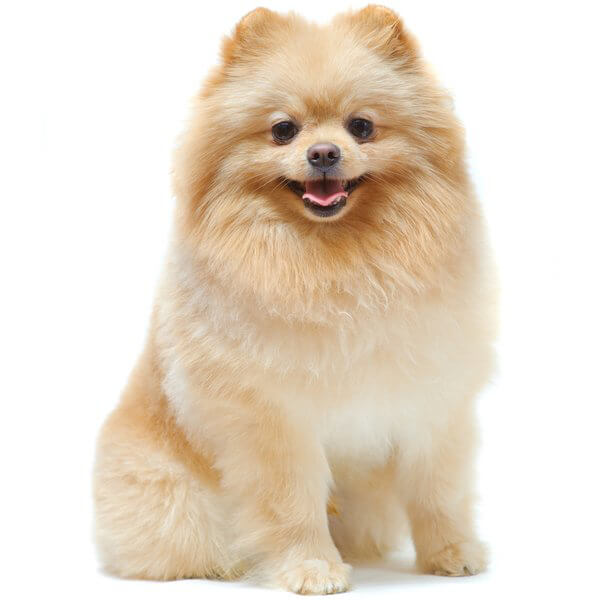

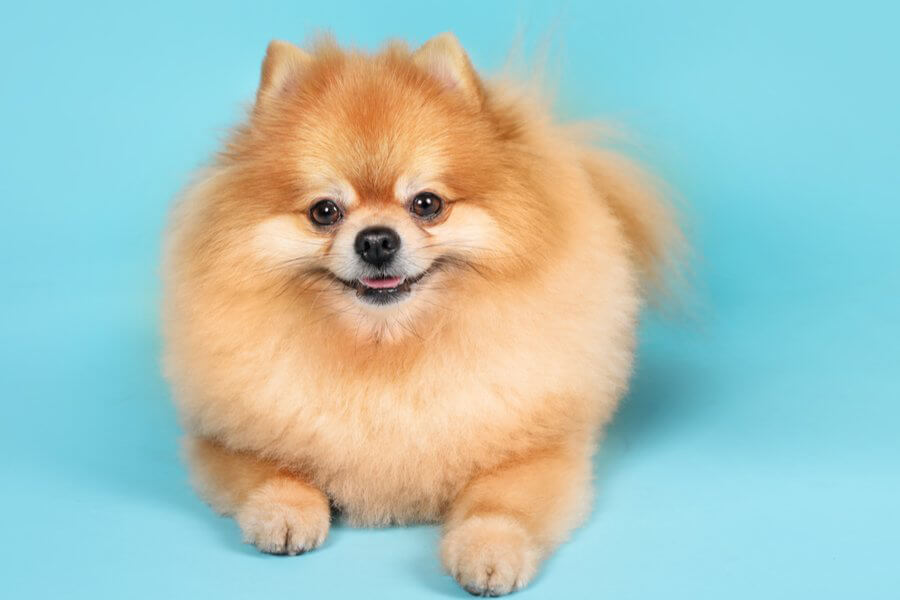


The Pomeranian is a descendant of the sled dogs that originated in the cold climate of Iceland. At some point, these Spitz dogs were brought over to Europe along the Southern Coast of the Baltic Sea, called Pomerania. This area now includes modern parts of Germany and Poland. In fact, the word ‘Pommore’ literally translates to ‘on the sea’. Experts believe that this is the place where large Spitz dogs were reduced in size.
As a result, the German Spitzen group appeared, which is a subgroup of the Spitz breed group. This eventually contained five different sizes of Spitz dogs that are considered to have been bred from the original German Spitz, including the Pomeranian. However, the Pomeranian was not known by this name until 1974. In fact, it had lots of names before this time including Fox Dog, Lulu, Volpino, and Pommer.
The exact breeds that made up the original Pomeranian are unclear. However, the first images of these little dogs appeared in the late 1700s. These dogs were white and parti-coloured. The other coat colours appeared later.
In Britain, the first Pomeranian recorded was ‘Pomer’ owned by James Boswell in 1764. During this time, the Pomeranian gained popularity with monarchs. Queen Charlotte was a big fan of the breed and imported her two Pomeranians, Phebe and Mercury, to England in 1767. These dogs were regularly painted in portraits by Sir Thomas Gainsborough throughout their lives. However, they were still bigger than today’s Pomeranians.
In 1873 when the UK Kennel Club was formed, the first Pomeranians shown weighed around 8kg. In 1888, Queen Victoria imported a Pomeranian from Florence, Italy. It was during her reign that these dogs increased in popularity. At one point, she had over 35 of these dogs in her kennels! This was also the time that the breed began to shrink in size due to the increasing popularity of small dogs.
In America, these dogs were first shown around 1892. They were first recognised by the American Kennel Club in 1900, which is the same time that the American Pomeranian Club was formed.
Today, these dogs are adored for their sweet appearance and lively natures the world over.
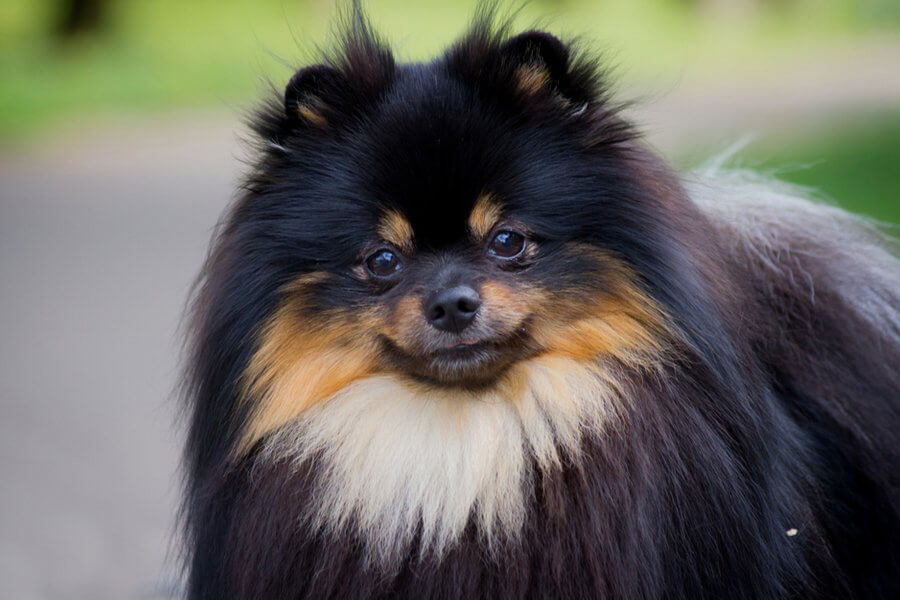
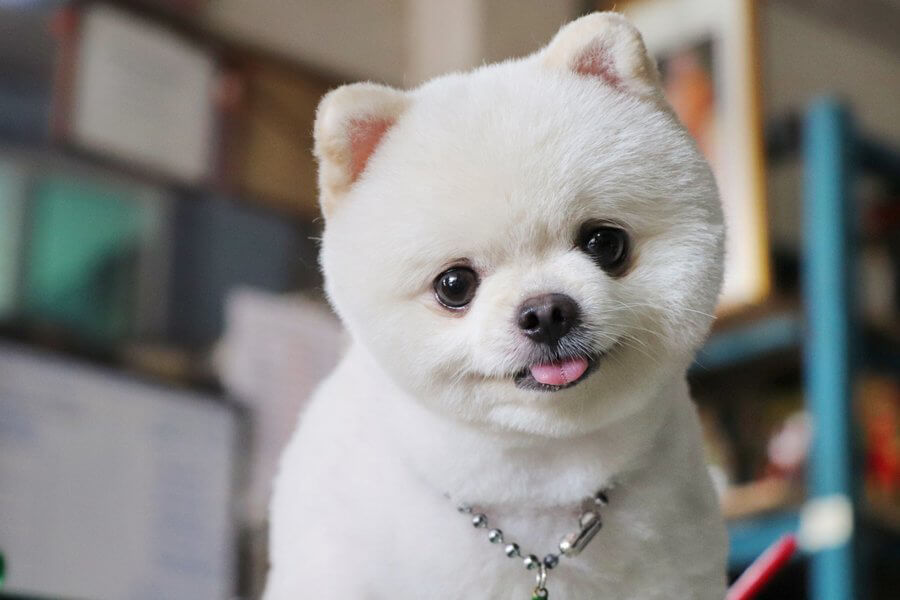
Pomeranians are small dogs with a dense and plush double coat. They have very fox-like features including a flat, elongated skull and a chiselled muzzle. Their eyes are oval-shaped and set wide on the head. Their noses can either be black, brown, or self-coloured depending on coat colour.
These dogs have perfectly erect ears and a complete scissor bite, with the upper teeth closely overlapping the bottom teeth.
Pomeranians have relatively short necks that are set well into their shoulders. They also have straight front legs, short backs, and well-ribbed bodies that give them their trademark ‘barrel’ look.
Their feet are very cat-like and dainty, with a tail that is set high over the back and covered with long, plush hairs.
When it comes to their coats, Pomeranians boast a double layer with a soft fluffy undercoat and a long outer coat that is flat and rough to the touch. These dogs have a very prominent ruff around their necks and chests which extends over the shoulders. Their front legs, back legs, and thighs are also heavily feathered which adds to their charming appeal.
Pomeranian coat colours vary widely. All whole colours are accepted under the breed standard, including black, white, and blue. They can also come in parti-coloured shades and shaded sable colours. The only colour not accepted under the breed standard is merle (dapple).
Pomeranians are sprightly little dogs that generally form strong bonds with one person in the family in particular. These small dogs have very big personalities, so they are not suitable for first time dog owners. You need to know how to appropriately train a Pomeranian otherwise they will walk all over you – these dogs are well known for being full-on extroverts!
Pomeranians are naturally very playful and energetic despite being small. They are bold, curious, and love to be the centre of attention! However, they may not be best suited to families with young children because they can snap when afraid or startled.
One of the main personality traits of Pomeranians is their tendency to bark. So, if you are considering adopting one of these dogs, you need to make sure you have enough time to devote to their training and individual needs. With appropriate training, as well as mental and physical stimulation, you will have a very devoted, lovable canine on your hands!
Regular walks are essential for this breed as they love the outdoors and meeting new people. It’s worth noting that these dogs were bred to withstand cold temperatures, so it’s important that you keep an eye on them in hot weather. Excessive panting, drooling, and lethargy can indicate heat exhaustion.
These dogs are fun and incredibly affectionate once they get to know you, which has made them very popular with families and individuals alike.
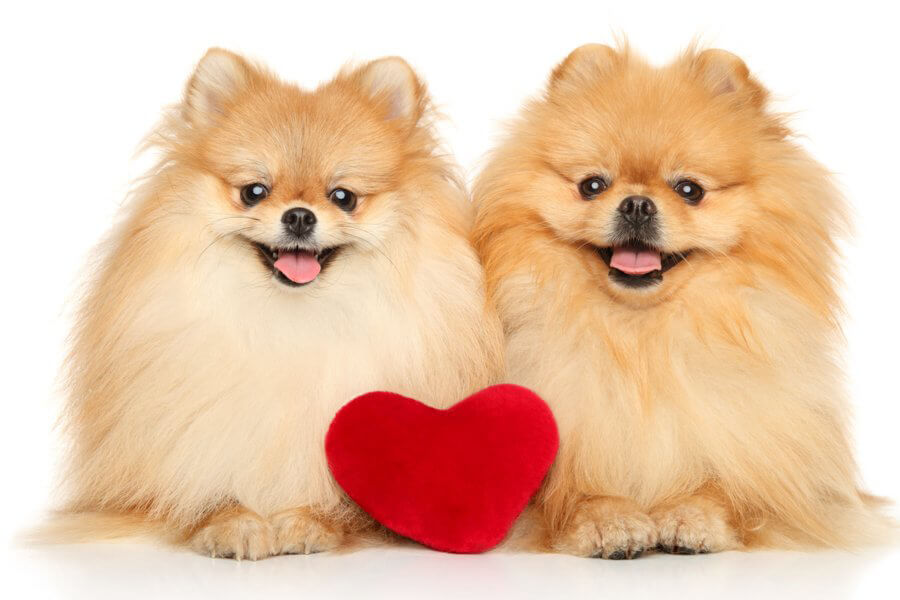
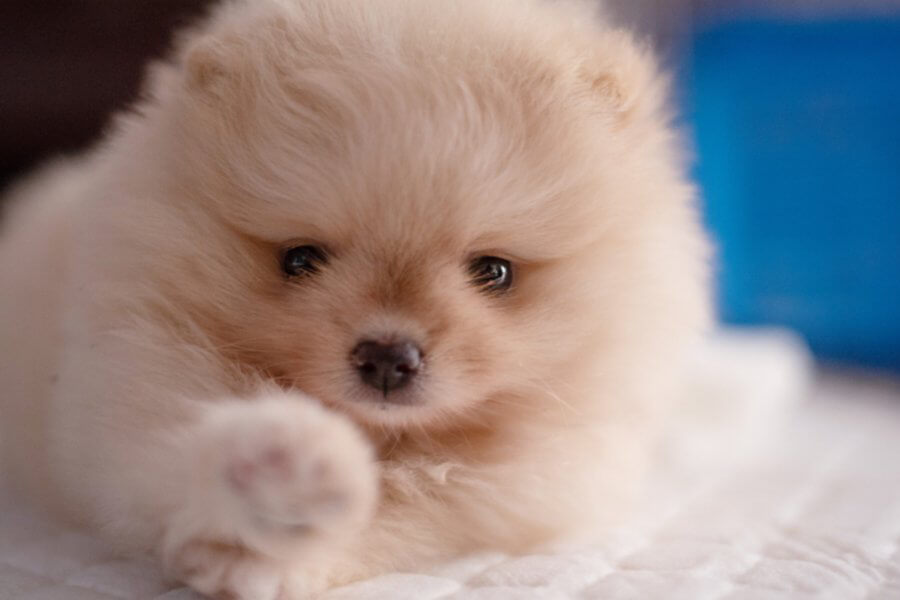
Pomeranians are highly intelligent dogs that are eager to please. However, their training does need to begin early as they have a strong independent streak. Persistent and firm training is recommended with this breed, but you should never punish them. These dogs are also generally good at learning a wide variety of tricks and commands.
Pomeranians are known to be quite difficult to housetrain so crate training is recommended. However, remember that no dog should be kept in a crate for more than a couple of hours. Crates are supposed to feel like safe dens rather than prison cages.
Furthermore, these dogs are increasingly used in agility courses and as therapy dogs. Which just goes to show how intelligent and loving Pomeranians can be.
Like any other breed, Pomeranians need to be groomed regularly to ensure their coats and skin are kept in good condition. Due to their thick, plush coats, these dogs should be brushed around three times a week, focusing on the longer ‘ruff’ and feathering around the legs. A slicker brush is best for this breed to ensure you get right down into the undercoat.
It’s important to start grooming at a young age to ensure your dog sees it as a nice activity rather than a chore, otherwise, you are just making it more difficult for yourself. They should be bathed once every three weeks or so.
In addition to grooming, you should make sure you brush your Pomeranian’s teeth at least three times a week, with daily brushing being the ideal approach. Also, check their ears regularly for any wax build-up which can be cleaned out with a moistened cotton wool ball and a PH-balanced ear cleaner specifically made for dogs.
Pomeranians often get discharge around the eyes which can be wiped away with a soft, damp cloth. However, excessive eye watering should be checked out by your vet.
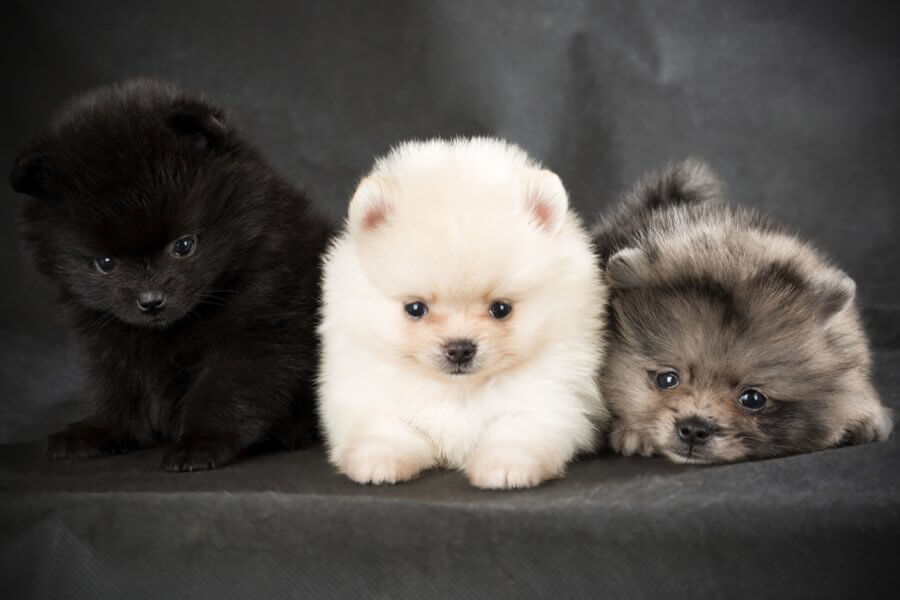
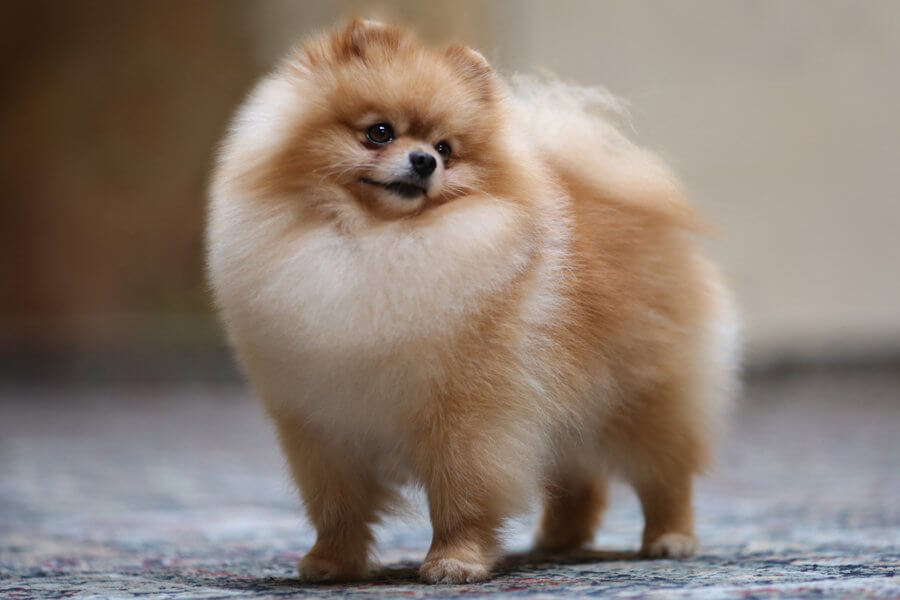
Like other dog breeds, Pomeranians are known to suffer from a few genetic health conditions. However, in general, they are known to be a very robust toy breed. Always purchase a Pomeranian puppy from a reputable and licensed breeder to ensure they have been well cared for. A trustworthy breeder will also perform DNA tests prior to purchase to ensure your puppy does not have any underlying health issues.
Some of the health issues commonly seen in Pomeranians are:
The courageous and active Pomeranian loves to play, but they are best matched to homes with older children who can be trusted to handle them carefully. As apparently strong as they seem, Pomeranians can be easily injured if they are accidentally dropped or stepped on by a young child. So, you should always supervise all interactions between a Pomeranian and a child.
Pomeranians are sociable by nature, so they are generally good around small-medium-sized dogs as long as they have been appropriately trained and socialised. The same goes for cats as long as they have been introduced properly. Care needs to be taken when introducing Pomeranians to larger, stronger dog breeds as these little canines can easily be overpowered. However, that doesn’t stop them from trying! Pomeranians will take on any animal if they feel that they or their families are under threat, so supervision is necessary to ensure there are no injuries.
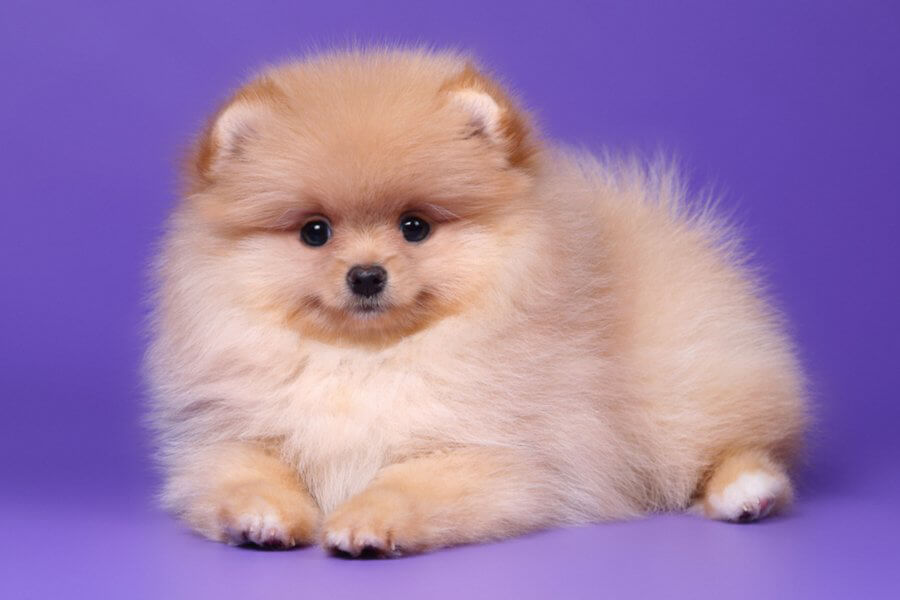
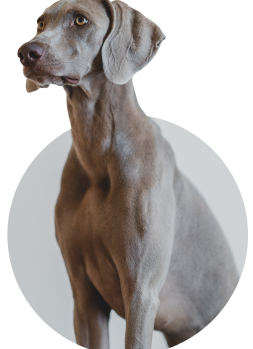
We can connect you with Breeders that are specialized in this particular breed.
See available puppies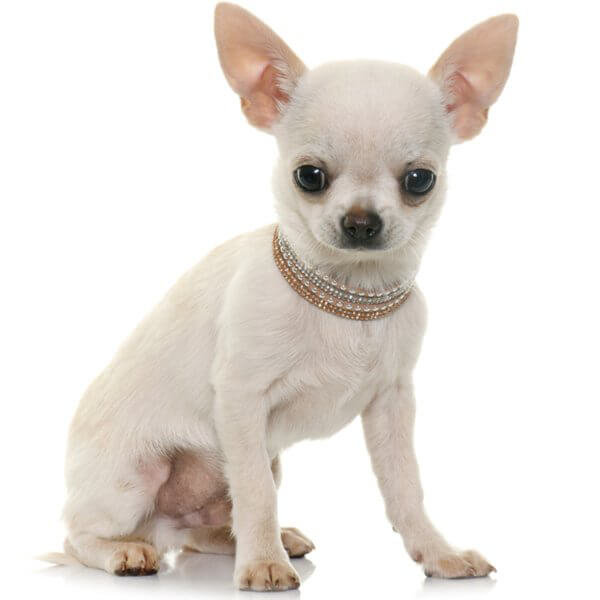
Mexico
Size : Small
Coat : Short
Registration : KC, FCI, AKC
Exercise : 30 minutes
Training : Easy
Grooming : Twice a Week
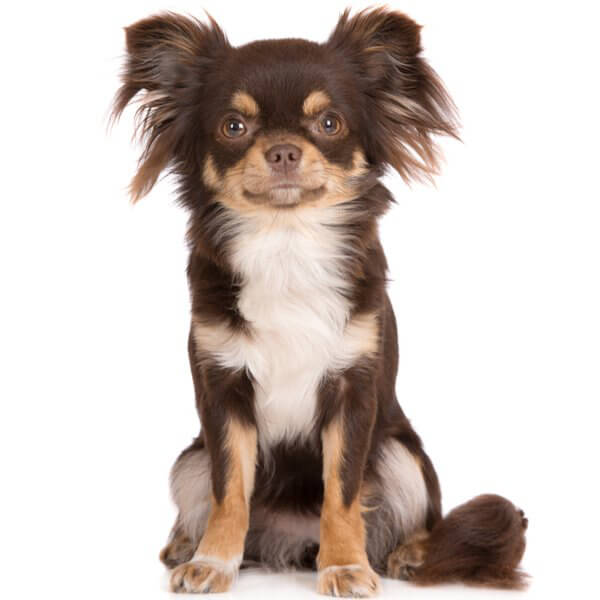
Mexico
Size : Small
Coat : Long
Registration : KC, FCI, AKC
Exercise : 30 minutes
Training : Easy
Grooming : Twice a Week
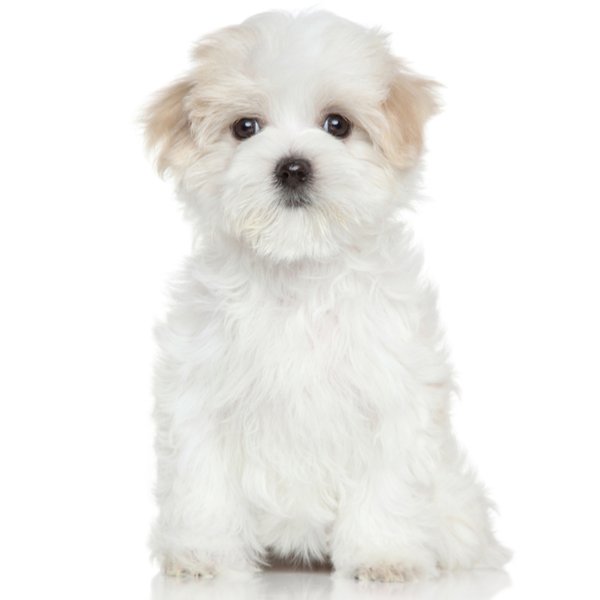
Malta
Size : Small
Coat : Long
Registration : KC, FCI, AKC
Exercise : 30 minutes
Training : Medium
Grooming : Twice a Week
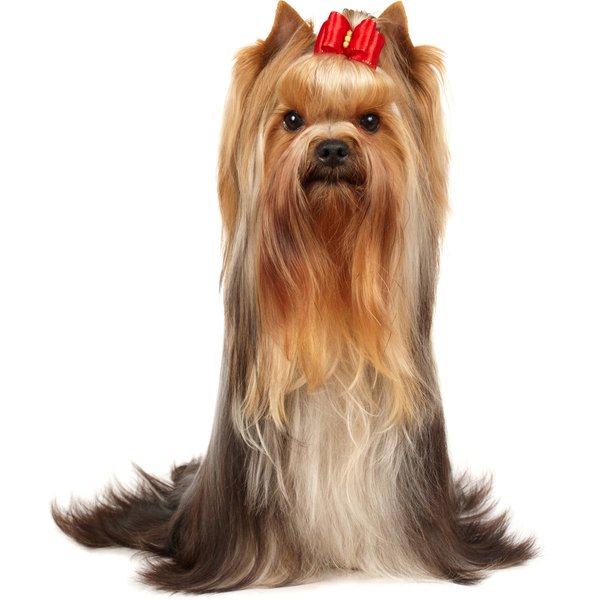
United Kingdom
Size : Small
Coat : Long
Registration : KC, FCI, AKC
Exercise : 30 minutes
Training : Easy
Grooming : Twice a Week


Need some advice?
Whether you're a first time pet owner, an experienced pet owner, a new or long-time breeder, or just curious about pets, we've got you covered!
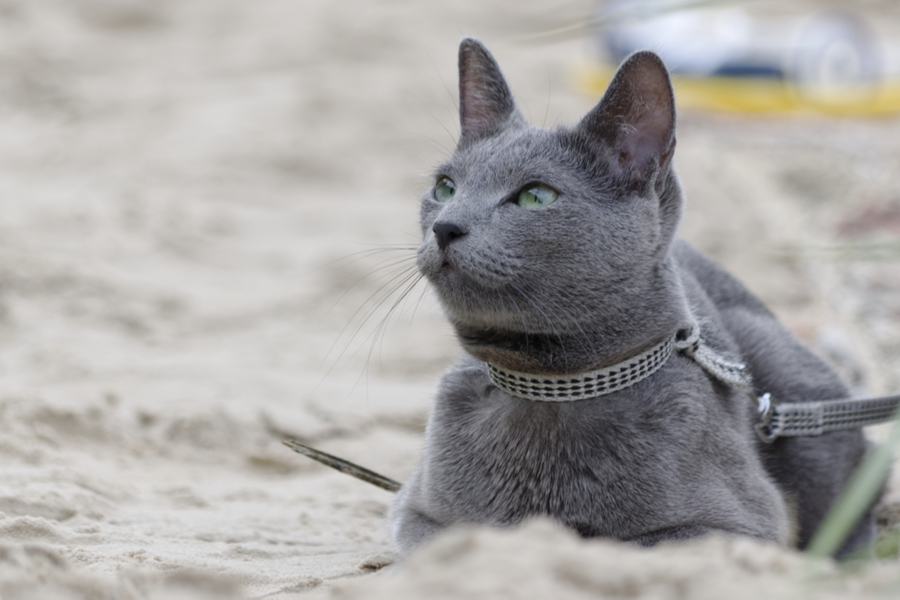
January 17, 2024
What Is The Personality Of Russian Blue Cats?
Russian Blue cats are most known for their distinctive shimmery blue-silver coat and piercing green eyes. However, this breed’s calm and gentle temperament is what makes them shine the most in the feline world.
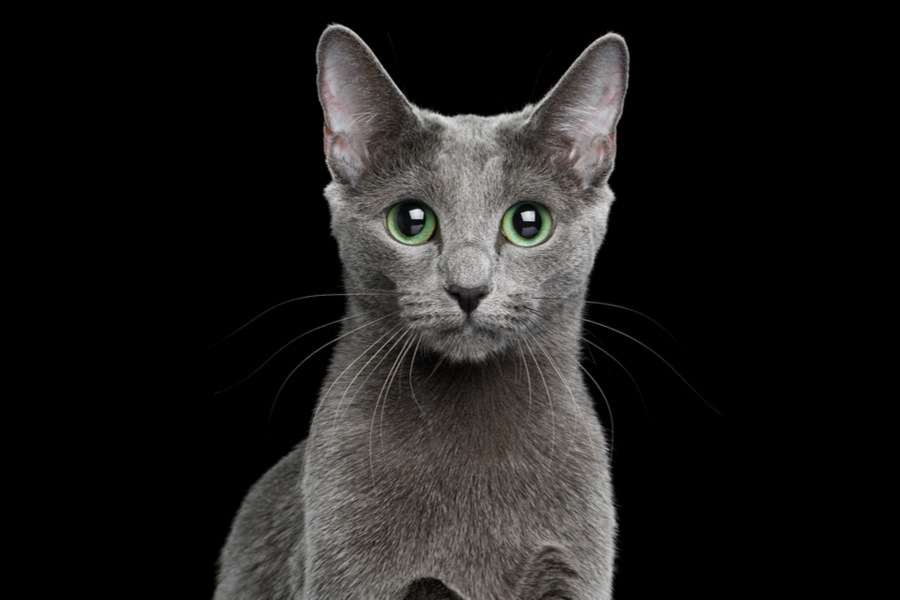
January 17, 2024
10 Facts About Russian Blue Cat Breed
Russian Blues are one of the most aesthetically stunning cat breeds, with a gorgeous plush silvery coat and vibrant green eyes. However, it’s not only their appearance that is beautiful; their nature is too.
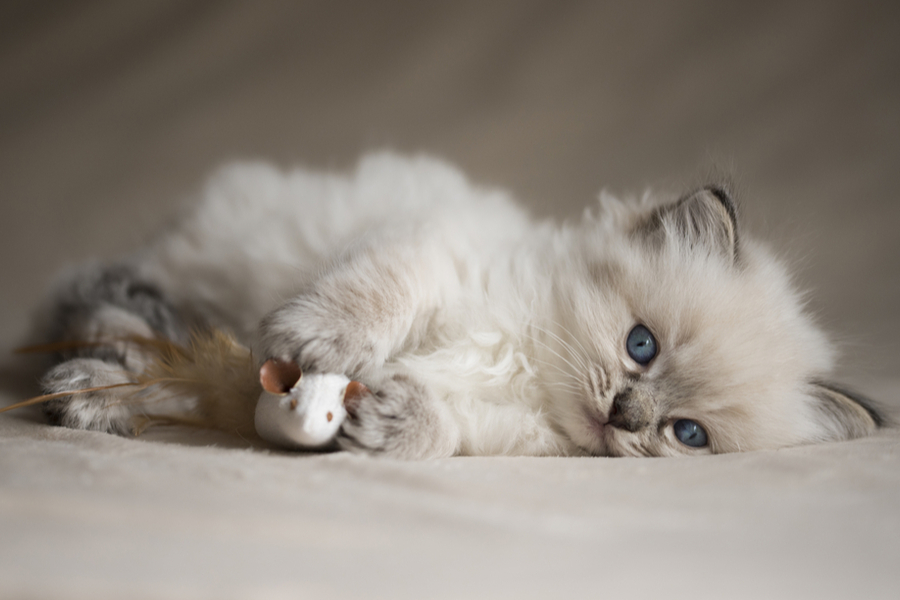
January 17, 2024
How To Choose The Right Cat Breed for You
Cats can make the most fantastic animal companions; they are adorable, friendly, and loving. However, not all felines are created equal. There are many different breeds, of which each has its unique personality traits.
Need some help?
Contact us to speak to our friendly advisor, who will gladly help you find your dream pet!



We are registered in England and Wales under registration number 12568840,
and our registered office is at 58-60 Kensington Church Street, W8 4DB London, England.
© 2023 The Pedigree Paws